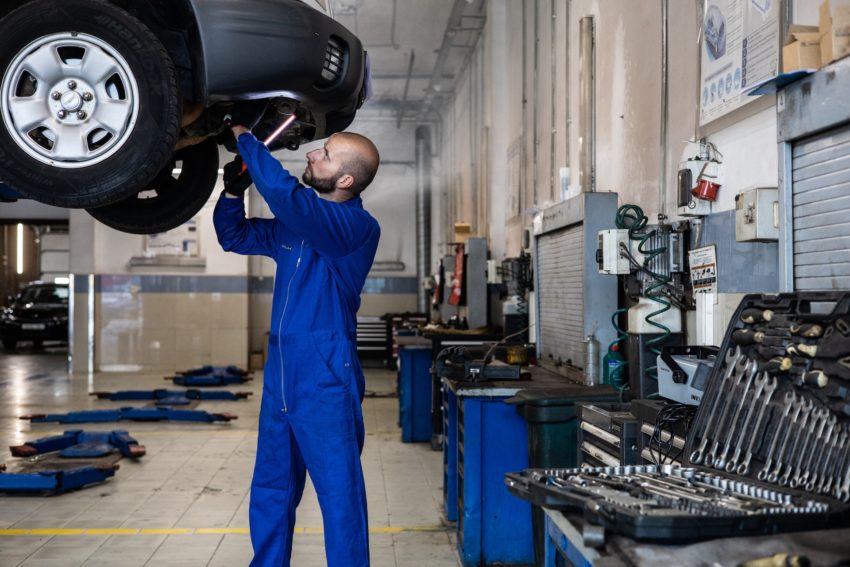
Those who work long hours outdoors often take greater sun exposure than they realize. Daily exposure to UV rays can damage the skin, leading to health concerns. So mechanics or anyone taking time to make car repairs when they are out in the elements of Mother Nature need to protect themselves.
Apply Daily Sunscreen
It’s impossible to emphasize the importance of sunscreen. Applying a broad-spectrum product with an SPF rating of 40 or greater protects your skin from UVA and UVB rays while working on car repairs. Being out under the sun for extended periods requires a few extra steps to ensure you’re receiving adequate coverage:
- Apply a liberal amount over any exposed skin. You may need several ounces.
- Consider SPF 50 for a full day under the sun.
- Reapply sunscreen every two hours.
- Monitor expiration dates.
Wear Useful Gear
Wearing protective clothing while outdoors is also essential. Even though it’s hot under the sun, long sleeves and pants dramatically reduce how much skin is exposed to damaging UV rays. Choosing light layers can also protect your skin. Likewise, be sure to cover the nape of the neck; this area is often forgotten but exposed if you’re bending.
Be Mindful of Reflective Surfaces
Direct sun is an obvious way that the sun damages the skin, but many people don’t consider how reflections amplify the rays. So when you’re working on shiny cars all day, especially around bodies of water or building with numerous windows, you’re receiving greater exposure than you might realize. The same sun care rules apply; choose a strong sunscreen and keep using it on the skin you can’t keep covered with clothing throughout the day.
Take Breaks in the Shade
Regardless of why you’re outside, you need a break from the sun every hour. Even if it’s just a few minutes under an awning, shade rests give your skin a break from damaging rays. Take a moment to reapply your sunscreen, drink water, and stay energized.
Keep Hydrated
Skin is the body’s largest organ, which means, like other organs, its cells depend on water to stay healthy. Without enough hydration, your cells don’t function properly, leaving your skin at greater risk for sun damage and worsening healing. So not only should you drink water daily to ensure your body is hydrated, but it also helps to moisturize your skin with hydrating creams and lotions after bathing.
Monitor Your Skin For Changes
Like the other preventative measures on this list, it’s essential to monitor your skin for any changes that might indicate a health concern including new or growing moles, areas of darker pigmentation, or other unusual changes to your skin’s appearance. Each of these symptoms are worth discussing with your doctor or a dermatologist.
Skin cancer is a common cancer that outdoor workers face an increased risk of, but the above sun care strategies can help reduce that possibility. It’s crucial to be proactive about taking care of your skin when you are working outside to prevent or limit damage from the sun.